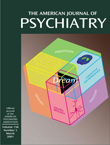Clozapine and Pulmonary Embolus
Mr. A, a 29-year-old man (6 feet tall, 180 lb) with a longstanding history of schizoaffective disorder and panic disorder with agoraphobia, was treated with a combination of 20 mg/day of olanzapine and 225 mg/day of extended-release venlafaxine as well as clonazepam, 1 mg/day as needed. During a hospitalization for a recurrence of mixed manic and psychotic symptoms and severe self-mutilation, his olanzapine treatment was discontinued. Since he had only partially responded to both risperidone and olanzapine, clozapine treatment was initiated. The other psychotropic medications were continued. Standard titration was used, and his pulse rate was assessed.After 6 weeks Mr. A had reached a dose of 300 mg/day and had had a good clinical response to clozapine. He then complained of chest pain and was noted to have symptomatic supraventricular tachycardia, which disappeared after cardioversion. He was admitted to a medical unit and hooked up to telemetry equipment. Six hours later he was found collapsed on the floor and failed to respond to resuscitation. An autopsy revealed a large pulmonary saddle embolus. Mr. A had no family history suggestive of a familial coagulopathy or cardiovascular illness except for an aunt who died of sudden cardiac arrest in her 30s. He exercised moderately, was not obese, did not smoke, and had not had surgery recently. He had had a previous episode of supraventricular tachycardia while taking olanzapine, which disappeared spontaneously.
References
Information & Authors
Information
Published In
History
Authors
Metrics & Citations
Metrics
Citations
Export Citations
If you have the appropriate software installed, you can download article citation data to the citation manager of your choice. Simply select your manager software from the list below and click Download.
For more information or tips please see 'Downloading to a citation manager' in the Help menu.
There are no citations for this item
View Options
View options
PDF/ePub
View PDF/ePubGet Access
Login options
Already a subscriber? Access your subscription through your login credentials or your institution for full access to this article.
Personal login Institutional Login Open Athens loginNot a subscriber?
PsychiatryOnline subscription options offer access to the DSM-5-TR® library, books, journals, CME, and patient resources. This all-in-one virtual library provides psychiatrists and mental health professionals with key resources for diagnosis, treatment, research, and professional development.
Need more help? PsychiatryOnline Customer Service may be reached by emailing [email protected] or by calling 800-368-5777 (in the U.S.) or 703-907-7322 (outside the U.S.).

